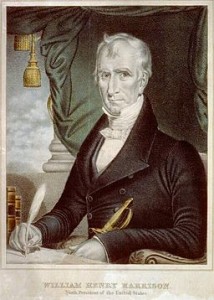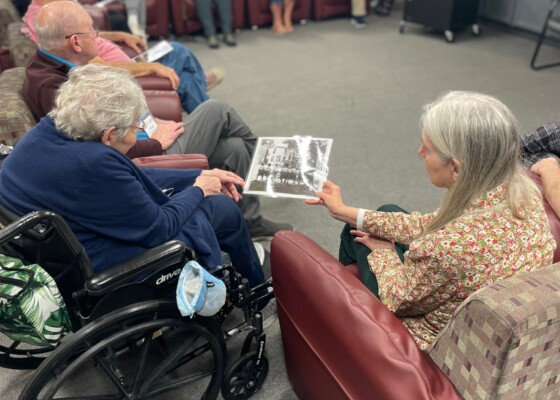Tippecanoe and the “Impertinent Puppy”
March 28, 2013Rivals? I nominate William McIntosh, a resident of Vincennes, and William Henry Harrison. The following excerpts are taken from my book, Buying America From the Indians, Johnson v. McIntosh and…

Rivals? I nominate William McIntosh, a resident of Vincennes, and William Henry Harrison. The following excerpts are taken from my book, Buying America From the Indians, Johnson v. McIntosh and the History of Native Land Rights, (University of Oklahoma Press, 2012):
On August 4, 1804, Harrison announced that an election would be held to determine whether [the Indiana Territory would] proceed to the next stage of government. In an odd twist of logic, William McIntosh accused Harrison of acting in defiance of popular wishes. The Scotsman also criticized the governor for sponsoring a convention that requested Congress to legalize slavery in the territory for ten years.
The accusations, which appeared in a published letter signed by “A Freeholder in Knox County,” triggered a rejoinder signed by “Gerald” but authored by Benjamin Parke, the attorney general of the Indiana Territory. Benjamin Parke declared McIntosh “an arrant knave, a profligate villain, a dastardly cheat, a perfidious rascal, an impertinent puppy, an absolute liar, and a mean, cowardly poltron.” In return, McIntosh condemned the “unprincipled slanderer Parke,” but declined his offer to duel, and thus avoided the fate that had befallen Alexander Hamilton in the previous month. . . .
[A few years later, following the 1809 Treaty at Fort Wayne,] Harrison sued McIntosh in the General Court of the Indiana Territory, alleging that the defendant had uttered “scandalous words” with regard to his conduct at Fort Wayne. The governor sought nine thousand dollars in damages. . . . The stage was set for Harrison’s slander suit, which was tried in April 1811. The jury concluded that McIntosh had defamed the governor and awarded four thousand dollars in damages. McIntosh was forced to sell land to satisfy the judgment, but two thirds of the property was returned, and Harrison eventually donated the remaining land to children who became orphans during the War of 1812. Following the conclusion of the trial, the governor reported with satisfaction to Secretary of War William Eustis that “the rascally calumniator begg’d for mercy, and his council labour’d only for a mitigation of damages.”
Note: McIntosh later became the defendant in an important Supreme Court cases, entitled Johnson v. McIntosh (1823). Harrison, of course, went on to become president.
This post was contributed by Blake Watson, Professor of Law, University of Dayton School of Law. In February and March, Indiana Humanities is exploring the topic of “rivalry,” as part of its Spirit of Competition theme.


